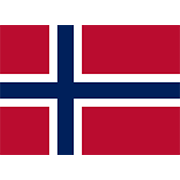Fiscal subject related
The Z report, also known as the End of the Day report, plays a vital role in Norwegian fiscalization. It must be the final transaction of the day and is required to be produced daily without exception. This report serves as a comprehensive summary of all registrations made within the cash register system during the day.
The Z report encompasses essential elements, such as transaction details, financial summaries, and relevant information for auditing purposes. Additionally, the Z report must have a consecutive numbering system and be clearly labeled as a Z report to distinguish it from other transaction records. This measure helps maintain an organized and transparent record-keeping system.
To ensure the accuracy and integrity of fiscal data, the Z report must not include any registrations that were already included in a previous Z report. This requirement prevents duplication or omission of transactions and guarantees that each report provides a comprehensive overview of the daily sales activities.
Importantly, the Z report must be the final transaction of the day, ensuring that it captures the entirety of daily operations accurately. This practice helps auditors assess the financial health of businesses and detect any irregularities or discrepancies in sales and revenue.
Moreover, Norwegian fiscalization regulations mandate the availability of printing capabilities at the point of sale. This provision allows businesses to generate reports and receipts promptly, ensuring transparency and facilitating easy access to financial records when necessary.
The X report has the same elements as the Z report, but it is not mandatory to produce an X report unless the auditor asks for one in case of an audit of the store.
Other news from Norway
Norway: Businesses Must Create Daily Z Reports, Printing Can Follow Later
 Norway
Author: Ivana Picajkić
Norway
Author: Ivana Picajkić
Under the new bookkeeping rules, businesses using cash register systems must prepare a daily cash settlement. Read more
Subscribe to get access to the latest news, documents, webinars and educations.
Already subscriber? Login


New document was uploaded: EV-chargers from the Fiscalization Perspective in Norway
 Norway
Author: Ivana Picajkić
Norway
Author: Ivana Picajkić
The purpose of this document is to explain rules regarding the treatment of EV chargers for electric vehicles in Norway in relation to fiscalization. The document will explain whether they are subjects of fiscalization or not, whether there are some special rules and regulations, or if there are some special rules Read more
Subscribe to get access to the latest news, documents, webinars and educations.
Already subscriber? Login


Norway: Stored Receipts Must Be Closed Before Day-End
 Norway
Author: Ivana Picajkić
Norway
Author: Ivana Picajkić
The Norwegian Tax Administration mandates that businesses finalize all sales before issuing a daily Z report. Read more
Subscribe to get access to the latest news, documents, webinars and educations.
Already subscriber? Login


Reminder: Norway’s Strict Rules on Invoices
 Norway
Author: Ivana Picajkić
Norway
Author: Ivana Picajkić
The Norwegian Tax Administration has reiterated that invoice numbers must not be altered and may only be generated through certified invoicing software or pre-printed forms bearing the seller’s enterprise details. Read more
Subscribe to get access to the latest news, documents, webinars and educations.
Already subscriber? Login


Norway: Bergen seeks permission for Sunday shopping
 Norway
Author: Ivana Picajkić
Norway
Author: Ivana Picajkić
Bergen and Oslo are seeking national approval to allow Sunday shopping, aiming to meet tourist demand while challenging Norway’s tradition of keeping shops closed on Sundays Bergen’s city council has voted to apply for national recognition as a “typical tourist destination.” If approved, this would allow shops in certain parts of the city to open on Sundays. Oslo has made the sa... Read more



Norwegian Tax Administration Clarifies: Bookkeepers Cannot Develop Their Own POS Systems
 Norway
Author: Ivana Picajkić
Norway
Author: Ivana Picajkić
The Norwegian Tax Administration has clarified that businesses subject to bookkeeping obligations cannot issue product declarations for POS systems they develop themselves, as only independent suppliers are authorized to do so under the Cash Register Systems Act. Let's find out what elese do you need to know! Read more
Subscribe to get access to the latest news, documents, webinars and educations.
Already subscriber? Login


Norway: The New Altinn Portal – Simpler, Safer, more Modern
 Norway
Author: Ivana Picajkić
Norway
Author: Ivana Picajkić
Norway is rebuilding the Altinn portal with a modern platform that offers stronger security, simpler design, mobile-friendly access, and improved integration options for professional systems. The rollout will be gradual, starting this autumn with a new inbox and system access features, while ensuring continuity with the existing portal during the transition. Altinn has served citizens and business... Read more


